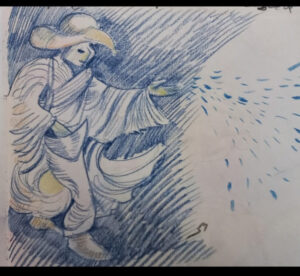dreams in a Patient with Bilateral Lesions of the Amygdala
In the article “Neuropsychoanalytic Findings in a Patient with Bilateral Lesions of the Amygdala” by Gerald Wiest & Elisabeth Brainin, ( Neuropsychoanalysis An Interdisciplinary Journal for Psychoanalysis and the Neurosciences Volume 12, 2010) – dreaming is discussed in the context of a patient with selective bilateral lesions of the amygdala undergoing psychoanalytic therapy.
The patient’s dreaming process and the content of his dreams are particularly relevant to understanding the neuropsychoanalytic implications of amygdala damage.
The patient reported difficulty in remembering his dreams. Despite having dreams during the night, he often couldn’t recall the details during his therapy sessions. This aspect of his dreaming could be related to the specific memory impairments he exhibited, particularly in recalling autobiographic episodes.
The few dreams that the patient did recall during therapy sessions were notable both for their content and for his reactions to them. For example, the patient described dreams where he appeared naked in various scenarios but did not experience any feelings of shame or embarrassment. This lack of emotional response in dreams where one might typically expect feelings of vulnerability or shame could suggest alterations in emotional processing due to amygdala lesions.
The patient’s dreams and his difficulty in recalling and associating with them were significant in his psychoanalytic treatment. The inability to freely associate with his dreams was consistent with his overall difficulty in producing free associations during therapy.
The discussion of dreams in this case is an intersection of neuropsychology and psychoanalysis. From a neuropsychological perspective, the patient’s dream patterns and recollections could be linked to the role of the amygdala in memory and emotional processing. From a psychoanalytic viewpoint, the content of the dreams, such as themes of exhibitionism without associated shame, and the patient’s inability to elaborate on them, provide insights into his unconscious mind and the impact of his neurological condition on his psychoanalytic process. 💠





